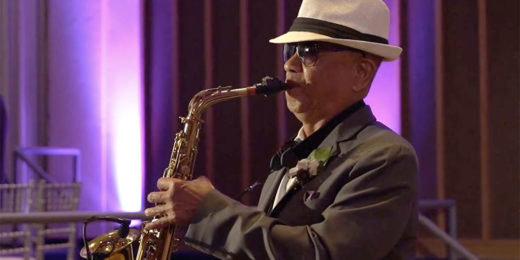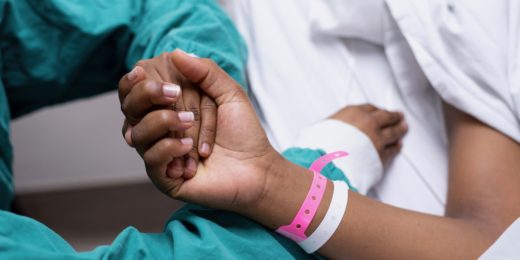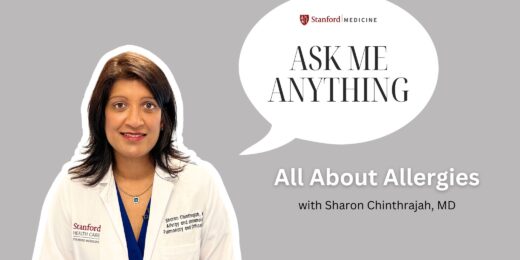About a month ago, Nidhi Rohatgi, MD, clinical associate professor of medicine, started taking calls from friends and acquaintances in India in the middle of the night. For weeks, the COVID-19 crisis there had been worsening, with cases and deaths rising to devastating numbers.
Since mid-April, Rohatgi has been helping stricken families -- sometimes even her own -- protect themselves and care for ill loved ones at home.
Rohatgi and many of her colleagues -- including Aruna Subramanian, MD, clinical professor of medicine; Manu Prakash, PhD, associate professor of bioengineering; and Sonoo Thadaney, executive director of presence and program of bedside medicine -- are leading an effort from thousands of miles away to provide assistance and combat harmful misinformation circulating in India about COVID-19 and how to treat it.
Rohatgi recently shared her perspective on how the surge of cases is affecting the people of India, and how she and her Stanford Medicine colleagues are scrambling to help.
What's the COVID-19 situation right now for hospitals, doctors and families in India?
It's hard to believe the illnesses that my friends and family are suffering at home.
The virus has exploded to unbelievable proportions. I don't know of anyone amongst my acquaintances, friends or family in India who hasn't either tested positive for COVID or had symptoms. The country is in lockdown, so people can't just run to the grocery store to get supplies. And they don't know if it's safe to leave the house.
In hospitals, where oxygen is scarce, whole wards, rather than just rooms, are filled with patient after patient in beds, or on the floor because there are so many sick people. Medical students are working as independent clinicians. Even people who have very low oxygen levels must manage at home because there just aren't enough resources to care for them elsewhere. Here, in the U.S., those people would be immediately hospitalized.
I grew up in India and I did my medical training there, so I still have many peers and colleagues I keep in touch with. They're feeling overwhelmed by the volume of calls they get; it's a ton. Everyone is on edge emotionally.
Patients who are ill at home are often on hold for hours to speak with a doctor by phone. Once they connect, they only get about two minutes. For physicians, those calls are almost never with just one patient. More often, it's with 10 because the entire family is ill. I don't know anyone in India who does not know of someone who has died of COVID.
What kinds of challenges are you helping people navigate?
I became involved when several of my family and friends had COVID. Initially, I planned to just speak with them and help them navigate symptoms and how to stay safe at home. But I realized so many more were desperate for help, and I've since spoken with hundreds of people who have COVID or are caring for a family member with the disease.
The conversations are just that -- conversations, not official medical advice. Patients still need to follow the instructions of their local doctors, as I am not licensed to provide medical guidance in India. For the past few weeks, I've just been trying to share good medical information and educational materials with patients, caregivers and our peers.
I talk with people who are ill about their oxygen saturation levels, how to stay properly hydrated and how to isolate at home. I take every single call that I get. Sometimes I don't even know what time it is, I just answer it. A lot of the work is really just reassuring individuals that they are supported and can call when they need guidance, because even if you have mild illness, COVID is still very scary.
How are you combatting misinformation in India?
One of the efforts I am leading here is to collate information that may be relevant to peers, or friends and family in India. We're training people on how to spot misinformation and remove it from the pipeline. In collaboration with the Stanford Center for Innovation in Global Health, we've launched a website with FAQs, informational videos, and interviews with panelists, and we're already seeing heavy traffic from India.
We recently did a live webinar where we invited patients, families and health care workers from India to join us as we discussed topics such as vaccines, care at home, medication that reduces blood clots, and testing for and managing COVID in adults. We plan to host more webinars to tackle topics like COVID in children; COVID, vaccines and use of blood-clot medications in pregnant or lactating women; and long COVID syndrome.
The material is meant for health providers to share with patients, for physicians and other health care workers so they are aware of best practices with intensive care, or to help train physicians on personal protection use.
Our goals are to aid in exchanging reliable information, to provide a trusted knowledge base for anyone to reference, and to support and strengthen the advice doctors are giving their patients.
Where do we go from here?
I'm just thinking one week at a time. I'm also an optimist. If you look at surges in other countries as populated as India, it did come to an end. So I'm hoping that as time goes on and more resources become available, only good things will happen. For now, we will continue doing what we can to help for as long as it takes.
It's been extremely trying, but I can't tell you how proud I am to belong to this institution, with so many generous and kind people who came together to give their time and share knowledge and information. It's not always about money. It's not always about resources. Sometimes people just need someone else to be there for them, and that's enough.
People who are not medical or health care professionals can help too. Everyone should get vaccinated, unless there is a medical contraindication. Think of it as the airline rule -- you must protect yourself before you can protect others. Once you're vaccinated, you're no longer a possible burden to your family or the health care system.
I know we're all tired, but the COVID crisis is not yet over, as desperate as I am for it to be. But as individuals, if we all do the right thing, I really believe it can go away.
Photo by NiksAds






